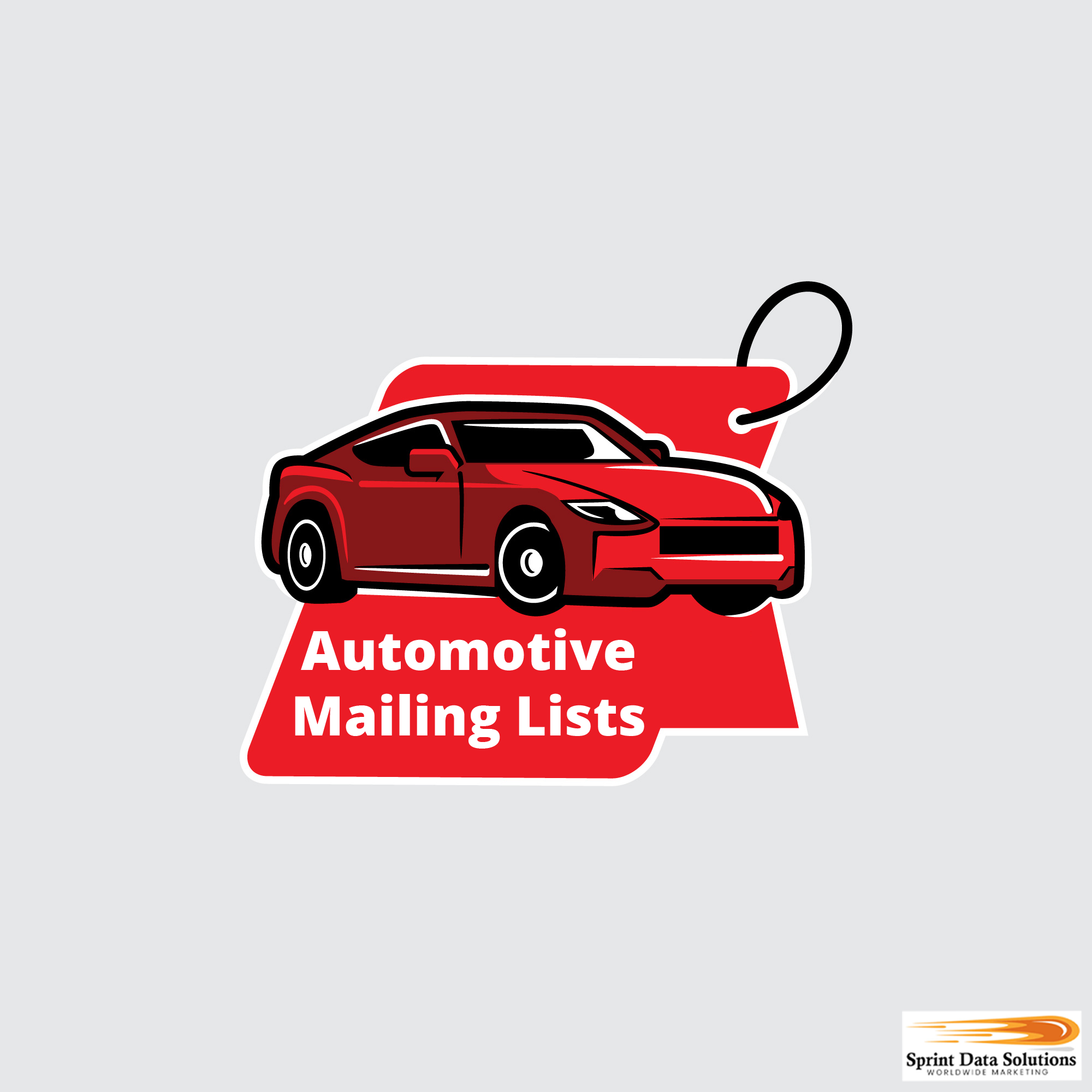The American Car Market Is Huge
America stands out as one of the few countries in the world that was young enough, with expansive undeveloped land and emerging urban centers, when automobiles were introduced and became widespread in the 20th century. This unique development of both infrastructure and societal norms set the stage for a country that heavily caters to car owners. For many Americans, owning a motor vehicle is not just a mode of transportation; it plays a critical role in both their personal and professional lives, symbolizing independence, convenience, and access.
This car-centric culture has resulted in a vast and diverse car-owning demographic across the country. With such a large segment of the population owning vehicles, a myriad of opportunities arises for businesses to offer products and services tailored to the unique needs, interests, and lifestyles of car owners. Whether it’s automotive accessories, maintenance services, insurance, or even specialized products for road trips and travel, the market is ripe for targeted marketing efforts. However, aligning the right products and services to the right type of car owner requires a deep understanding of their habits, preferences, and purchasing behaviors.
This is where Sprint Data Solutions Worldwide Marketing steps in. With our comprehensive and customizable databases, we specialize in helping businesses effectively target the car-owning demographic. We leverage a wealth of data to provide precise targeting, ensuring that the right products and services reach the right individuals. Whether it’s connecting with car enthusiasts, families with specific vehicle needs, or business professionals relying on their vehicles for work, our tailored solutions help you cut through the noise and drive meaningful engagement. By using the power of data, Sprint Data Solutions ensures your marketing efforts are aligned with the true needs of the car owner, resulting in higher conversion rates and a better ROI.

Automotive Mailing List
The automotive mailing list is one of the most expansive and comprehensive lists in the market, encompassing a vast range of individuals and businesses involved in the automotive industry. This “master list” covers all aspects of the automotive world, including new car buyers, used car purchasers, auto parts enthusiasts, mechanics, and anyone with a general interest in vehicles. It’s an essential resource for businesses that want to target a broad audience with a variety of automotive-related products and services. Whether you’re marketing car cleaning products, auto repair services, or vehicle accessories, this list offers unparalleled reach to individuals who are actively engaged in or interested in the automotive industry.
This all-encompassing database is ideal for companies looking to market products that appeal to a wide audience, ranging from routine vehicle maintenance and car care to luxury auto accessories and performance enhancements. By tapping into such a diverse market, businesses can capture the attention of a wide array of consumers, from the everyday car owner to the car enthusiast, making it a critical tool for those aiming to cast a wide net across the automotive world.
Automotive VIN Number Mailing List
The Vehicle Identification Number (VIN) is a unique code assigned to every vehicle, serving as its fingerprint. Each VIN remains with the vehicle throughout its life, providing detailed information about its make, model, year, place of manufacture, and more. This data makes VIN-based marketing exceptionally powerful, as businesses can target owners of specific vehicles with highly personalized offers.
By using VIN databases, companies can tailor their marketing efforts based on a vehicle’s age, model, or even its maintenance history. For example, businesses could offer services like routine maintenance, part replacements, or specific products that cater to the needs of vehicles of a certain age. This level of targeting allows businesses to reach vehicle owners with relevant offers, enhancing the likelihood of conversion. Whether you’re promoting aftermarket parts for a specific vehicle model, offering extended warranties, or advertising accessories suited to a particular make and model, VIN-based marketing enables precise, data-driven outreach that speaks directly to the vehicle owner’s needs.
Automotive Parts Buyers
The market for automotive parts is diverse and lucrative, consisting of individuals and businesses that seek to repair, refurbish, or upgrade their vehicles. Cars, while designed for long-term reliability, often require maintenance or part replacements due to wear and tear, accidents, or improvements. Rather than purchasing a new vehicle, many consumers opt to replace or upgrade specific parts, making the automotive parts buyer a key demographic for a wide range of products and services.
From professional auto repair shops to DIY enthusiasts, this market segment is actively engaged in purchasing parts, tools, and accessories. In addition to the basic parts required for repairs, there is a significant market for related services and products, such as car detailing, paint, and restoration kits. Marketing to automotive parts buyers can be highly rewarding, but it requires careful segmentation. These consumers not only purchase parts but also often need specific tools for installation, cleaning, and maintenance, creating an opportunity for businesses to offer complementary products, such as repair tools, lubricants, and maintenance kits.
For businesses in the automotive parts sector, the key to success lies in targeting this audience with precision, offering the right products at the right time, and ensuring that the messaging aligns with the specific needs of car owners looking to maintain or enhance their vehicles.
Automotive High-Performance Vehicle Mailing List
The high-performance vehicle market offers a distinctive demographic that is both knowledgeable and discerning when it comes to automotive products and services. Owners of these specialized vehicles not only have a deep understanding of the performance and engineering behind their cars, but they are also more likely to be interested in premium accessories, custom parts, and advanced maintenance products. These consumers actively seek high-quality items that enhance the performance, aesthetics, and overall experience of their vehicles.
Additionally, high-performance vehicles often come with a significantly higher price tag, indicating that their owners typically belong to a higher economic bracket. This makes them ideal targets for luxury or financial services, such as investment products, wealth management, or high-end insurance. They may also be more open to exclusive offers, such as bespoke car care products, specialized aftermarket enhancements, and exclusive driving experiences. By leveraging targeted marketing strategies, businesses can tailor their offers to this affluent and highly engaged audience, ensuring they resonate with their particular preferences and needs. Furthermore, the high-net-worth individuals who own high-performance vehicles often support charitable causes, providing opportunities for donation-based campaigns or philanthropic engagement.
Automotive Insurance Data
Auto insurance is a fundamental aspect of vehicle ownership in the United States, as most states require drivers to maintain coverage in order to legally operate their cars. The wealth of data collected through auto insurance policies can provide businesses with valuable insights into both the vehicle and the driver, making it a powerful tool for targeted marketing. Beyond basic information like the make, model, and age of the car, insurance data can also reveal critical details about the driver’s habits and risk profile, such as the frequency of accidents, driving history, and even the types of coverage they maintain.
This level of information allows businesses to create more personalized marketing campaigns, targeting specific segments based on the driver’s risk factors and history. For example, businesses offering safety products, maintenance services, or repair services can target drivers who have a clean driving record, while companies offering accident-related services or accident prevention products might focus on those with a higher claim frequency. Additionally, insurance data can be a useful tool for promoting vehicle-related financial products, such as extended warranties or financing options, aligning marketing strategies with the needs and preferences of particular driver groups.
Automotive Lease Data

For many individuals, purchasing a car outright may not be financially viable due to the high upfront costs, particularly for new or mid-range vehicles. Leasing offers a practical solution, providing car owners with a more affordable option by lowering their monthly payments and spreading out the cost of the vehicle over time. However, leasing a car often requires meeting specific credit score criteria, which means that those who lease are typically more financially stable than individuals who may purchase used vehicles without financing.
This unique demographic presents valuable opportunities for businesses looking to market products and services tailored to a more budget-conscious yet financially responsible audience. For example, businesses offering financial services, such as debt management, savings plans, or credit-building tools, can cater to this group by aligning their offerings with the lifestyle and financial behavior of car leasers. Additionally, since car leasing is common among professionals and individuals who rely on their vehicles for work, services like professional car detailing, maintenance packages, or even travel-related products can be marketed effectively to this group. Understanding the economic behavior and lifestyle of car lessees allows businesses to craft targeted, impactful marketing strategies that resonate with their audience’s specific financial needs and preferences.
Automotive Year, Make & Model
When it comes to car ownership, people buy vehicles for a variety of reasons, and understanding the specifics of a car’s year, make, and model can offer valuable insights into its owner’s lifestyle, preferences, and purchasing habits. For example, a person who purchases a truck with significant towing capacity is likely to have a different set of priorities than someone who opts for a luxury sports car or a compact city vehicle. Knowing the type of car someone owns, along with the year it was made, can help businesses gauge their financial situation and potential spending power.
A car’s age also plays a pivotal role in understanding the owner’s behavior. A person driving a 10-year-old car is likely to have different financial priorities compared to someone who regularly upgrades to the latest model of a luxury vehicle. By accessing databases that contain detailed information about the year, make, and model of vehicles, businesses can tailor their marketing efforts to target specific groups based on their purchasing habits, needs, and financial standing. Whether it’s offering car maintenance services, targeting the latest model buyers for new products, or promoting accessories, understanding the vehicle details helps create a more accurate and relevant marketing strategy, ensuring that your product offerings align with the lifestyle of your target audience.
Automotive Warranty Data
Automotive warranties provide critical insights into a vehicle’s lifecycle, helping businesses understand the age and maintenance status of a car, which can influence the kinds of products and services that are most relevant for its owner. A car’s warranty status can tell you when a vehicle is approaching the end of its coverage, signaling the owner may soon need additional services such as extended warranties, aftermarket parts, or maintenance solutions. This is particularly valuable for companies offering preventative services like tune-ups, oil changes, or auto repair kits, as well as those in the business of offering extended warranty packages for cars nearing the end of their manufacturer’s warranty.
A car nearing the end of its warranty is also more likely to need additional maintenance or parts replacements, and targeted marketing campaigns can be tailored around this. For instance, a vehicle owner nearing the end of their car’s warranty may benefit from offers on vehicle care products that help extend the life of their vehicle or help prevent future issues. Understanding where a car is in its warranty cycle enables businesses to develop campaigns that provide timely and useful offers, ensuring that the marketing message resonates with the owner’s current needs, whether it’s for repairs, accessories, or specialized maintenance services.
Automotive Accessory Buyers
Automotive accessories are more than just add-ons to a vehicle; they can provide a wealth of information about the car owner’s preferences, needs, and lifestyle. Some accessories, such as practical tools like snow brushes, are necessary for specific geographic locations and climates, especially in colder regions where vehicles are subjected to harsh weather conditions. However, certain accessories go beyond practicality and serve as indicators of a car owner’s personality, interests, and desires.
For instance, a person who invests in a high-end, aftermarket audio system for their vehicle is signaling a clear preference for premium sound and a willingness to invest in enhancing their in-car experience. Similarly, a car owner who opts for custom rims, body kits, or paint jobs is likely to be someone with a keen interest in personalizing their vehicle and is often part of a demographic that values unique and custom features. This presents businesses with opportunities to market specialized products such as custom accessories, high-performance parts, or aesthetic upgrades.
Beyond just selling generic car products, understanding the types of accessories a car owner is purchasing allows businesses to offer more tailored solutions. Whether it’s targeting enthusiasts who seek to upgrade their car’s aesthetics or those who prefer to enhance the performance, knowing a customer’s accessory preferences provides an invaluable window into their broader automotive tastes and can guide businesses in offering the right products at the right time. By focusing on this segment, companies can effectively appeal to customers who are passionate about cars and willing to spend on products that reflect their unique preferences and lifestyle.
Automotive Hybrid Data
As the global demand for energy continues to rise, the limitations of fossil fuels become increasingly apparent. With petroleum being a finite resource, its availability and pricing are subject to volatile factors, such as shifts in global economic policies, geopolitical tensions, and international conflicts like the Russian invasion of Ukraine. These fluctuations in fuel prices impact consumers’ daily lives, and many are seeking ways to mitigate the unpredictable costs of gasoline. One solution that has gained popularity is hybrid vehicles, which offer a combination of traditional gasoline engines and electric motors, allowing drivers to reduce fuel consumption and lower emissions.
While some individuals choose fully electric vehicles (EVs) for their environmental benefits, the practicality of EVs is often hindered by limited driving range and a lack of widespread charging infrastructure. For these reasons, hybrid vehicles offer a more feasible alternative for many drivers. Hybrid owners tend to value efficiency, sustainability, and cost savings, making them a prime demographic for eco-friendly products and services. Access to hybrid vehicle data enables businesses to target these environmentally conscious consumers with relevant marketing strategies, such as offering energy-efficient vehicle accessories, hybrid-specific maintenance services, or eco-friendly car care products. By understanding the unique needs and behaviors of hybrid vehicle owners, companies can craft campaigns that resonate with this growing market, driving higher engagement and conversions.
A Network Of Databases
Sprint Data Solutions Worldwide Marketing boasts an extensive array of proprietary database resources, but our commitment to offering clients the best possible marketing solutions goes beyond just our own data. We have developed strategic partnerships with a wide range of organizations that specialize in gathering and analyzing data across different industries. This collaborative approach allows us to offer our clients access to an even broader spectrum of targeted databases, enriching our ability to deliver comprehensive, data-driven marketing strategies.
In the automotive sector, for example, our partnerships provide us with valuable insights into a wide variety of consumer segments, from hybrid and electric vehicle owners to those who own traditional gasoline-powered cars. By integrating these external databases with our own, we offer businesses a well-rounded and precise approach to reaching the right audience. Whether it’s targeting consumers based on the type of vehicle they own, their geographic location, or their purchasing behavior, our expansive network of databases provides the necessary tools to effectively market products and services to the right individuals. Sprint Data Solutions Worldwide Marketing’s ability to tap into these diverse data sources ensures that your marketing campaigns are both highly targeted and highly effective, helping you reach your business goals with greater ease and precision.

CARS
CARS, or Compliant Auto Resource Solutions, is an extensive and powerful database that provides detailed contact information for over 160 million individuals who own registered vehicles. This resource is invaluable for businesses looking to target automotive consumers with highly relevant products and services. The database includes critical information such as the owner’s name, address, full Vehicle Identification Number (VIN), and various demographic data, allowing users to segment and categorize the data according to specific metrics. This level of detail makes CARS an ideal tool for businesses aiming to fine-tune their marketing strategies, ensuring they reach the right audience based on specific vehicle ownership and personal characteristics. By sorting and organizing this rich dataset, businesses can craft targeted marketing campaigns that resonate with the most appropriate consumers, whether they’re focused on new car buyers, specific vehicle models, or regions with high concentrations of car ownership.
Black Book Data
Black Book Data is a specialized database designed to meet the needs of car dealers, auto repair shops, and market analysts by providing highly detailed information about vehicles and their current market value. This resource is indispensable for businesses that need to stay informed about the automotive industry, including up-to-date pricing, vehicle history, and the specifics of car sales trends. The database includes a wealth of information such as VIN numbers, pricing data for vehicles dating back to 1981, regional data, mileage, parts history, and additional metrics like the “cars of particular interest,” which can include luxury models, trucks, motorcycles, and other specialty vehicles.
For businesses involved in buying, selling, or servicing vehicles, Black Book Data provides insights into the market’s ever-changing dynamics, helping businesses make informed decisions about inventory, pricing, and customer targeting. By using this data, companies can understand the demand for certain vehicle types, identify profitable opportunities, and gain a competitive edge in an increasingly fast-paced market. This makes Black Book Data not only an essential resource for the automotive sector but also an invaluable tool for predicting pricing trends and understanding consumer preferences across different vehicle categories.
Auto VINdication
Auto VINdication is a specialized database focused on tracking Vehicle Identification Numbers (VIN) and their associated ownership records. VIN is a unique 17-character code assigned to every vehicle, making it the automotive equivalent of a fingerprint. Each VIN corresponds to a specific vehicle and provides detailed information about the car’s history, including its make, model, engine type, and manufacturing location. The Auto VINdication database tracks the history of these VINs, specifically focusing on ownership changes and title transfers, making it an invaluable tool for businesses looking to ensure the accuracy and relevance of their marketing efforts.
By leveraging VIN data, businesses can create highly targeted marketing campaigns based on the vehicle’s history and current owner. For example, businesses can focus their efforts on owners of used vehicles that have recently undergone a title change, ensuring that their offers are reaching individuals who are most likely in the market for new services or products. This type of data-driven targeting increases the likelihood of success for businesses offering vehicle-specific promotions, such as maintenance packages, extended warranties, or aftermarket parts. By accessing the Auto VINdication database, businesses gain the ability to refine their outreach efforts, providing more personalized and timely marketing messages to potential customers.
Kelley Blue Book Data
Kelley Blue Book (KBB) is one of the most trusted and widely recognized names in the automotive industry, providing detailed pricing information for vehicles, and has been an essential resource for nearly a century. Founded in 1918 as a car dealership selling Ford Model Ts, Kelley Blue Book began compiling vehicle pricing data in 1926 to help standardize the valuation of vehicles. Over the years, KBB’s database evolved into an indispensable tool for both the automotive industry and consumers, offering pricing guides for not just cars but also trucks, motorcycles, watercraft, and more. The company introduced the critical concept of factoring in mileage as a significant variable for determining a vehicle’s value, which revolutionized how vehicle pricing was understood and applied.
Today, KBB remains a cornerstone of the automotive market, offering an authoritative resource for determining the fair market value of vehicles based on condition, mileage, and other key factors. This data is used by car dealerships, insurance companies, and individual buyers and sellers to make informed decisions about vehicle pricing. KBB’s influence has expanded beyond the U.S. into global markets, including China, solidifying its position as one of the largest and most frequently consulted pricing databases for motor vehicles in the world. For businesses, access to Kelley Blue Book Data provides valuable insights into market trends and consumer behavior, enabling them to adjust pricing strategies, forecast sales, and tailor marketing efforts to the current demand and value of specific vehicle types.

How Sprint Data Solutions Worldwide Marketing Can Help
Sprint Data Solutions Worldwide Marketing has developed a robust and comprehensive database of contact information, enhanced by strategic partnerships with reputable organizations across various industries and sectors. This extensive network greatly expands the reach of their services, offering clients access to an enriched pool of potential leads. What sets Sprint Data Solutions apart is its unwavering commitment to ethical data collection practices. All contact details are gathered through lawful and transparent methods, such as opt-in programs, account creation, newsletter subscriptions, survey participation, and the donation of business cards, ensuring that the data is reliable, accurate, and legally compliant.
However, unlike static databases, Sprint Data Solutions understands the importance of keeping data up to date. The dynamic nature of car ownership—whether through sales, first-time purchases, or the unfortunate passing of an individual—necessitates continuous monitoring and updates. Regular reevaluation ensures that outdated or irrelevant data is removed, while fresh and pertinent information is integrated. This ongoing process guarantees that clients are receiving the most current and accurate contact details, eliminating the risk of wasting marketing resources by targeting individuals no longer suited to the campaign. The result is highly relevant, actionable data that aligns with current market conditions and client goals.
To further enhance the utility of their databases, Sprint Data Solutions leverages cutting-edge big data analytics, utilizing artificial intelligence and machine learning algorithms to dig deeper into the data. These advanced systems analyze various characteristics and behaviors, identifying deeper insights and connections that might otherwise be overlooked. This process allows the company to match contact details with the most relevant demographic profiles, ensuring that marketing efforts reach individuals who are not only in the correct geographic location but also have a higher likelihood of engaging with the campaign. The result is a more effective outreach strategy, where each contact has been carefully curated for greater relevance, improving engagement rates and overall marketing ROI.
Geography plays a crucial role in Sprint Data Solutions’ database capabilities. At the national level, businesses can launch large-scale marketing campaigns targeting audiences across the entire country. However, if the goal is more specific, the geographic scope can be narrowed down to particular regions, states, or even individual towns or neighborhoods. For instance, if a business wants to target automobile owners exclusively in Miami’s Coral Way neighborhood, Sprint Data Solutions can pinpoint that area and ensure marketing efforts are focused precisely where they are needed. This level of geographic targeting allows businesses to hone in on highly relevant audiences, optimizing their campaigns for maximum impact.
In addition to geographic targeting, Sprint Data Solutions offers the ability to segment its databases based on a variety of demographic factors. These include ethnicity, faith-based categories, economic status, medical conditions, and more. This segmentation allows businesses to tailor their messages and offers to resonate with specific groups. For example, if a product or service is more relevant to Latin American car owners or Catholic families, Sprint Data Solutions can prioritize these audiences to ensure that the messaging aligns with their cultural values and preferences. Economic metrics can also be employed, ensuring that high-net-worth individuals are targeted with luxury products or services. Furthermore, for industries like healthcare, medical metrics such as specific health conditions (e.g., diabetes) can be incorporated, allowing for the precise targeting of individuals who would benefit most from specialized products or services. This combination of geographic and demographic targeting enables businesses to run highly personalized, effective campaigns, increasing the likelihood of conversion and customer satisfaction.
Contact Formats & More

At Sprint Data Solutions Worldwide Marketing, we understand that businesses require data in the format that best suits their marketing needs. Whether you’re running a direct mail campaign, an email marketing initiative, or a text messaging program, we provide the essential contact details that align with your goals.
For direct mail campaigns, we offer physical mailing addresses for both general consumers and businesses, enabling you to reach your target audience through customized outreach. For B2B marketing, we provide not only business addresses but also the key decision-maker contacts, ensuring you target the right individuals rather than generic company emails or addresses.
For email campaigns, our databases include both individual and corporate email addresses. B2B clients specifically benefit from corporate email addresses, which provide direct access to the key decision-makers, helping streamline your outreach. When it comes to marketing strategies that require more personal interaction, we provide residential phone numbers for consumer outreach, as well as business phone numbers for decision-maker contact in B2B efforts. Additionally, we offer cellular phone numbers for campaigns focused on SMS/text marketing, allowing you to connect directly with customers via their preferred communication channel.
Sprint Data Solutions Worldwide Marketing also offers additional services to support businesses with their marketing strategies. For example, if you’re looking to run a direct mail campaign but lack the expertise to manage it, we offer a complete turnkey solution. Our direct mail service guides you through every stage of the process, from concept creation and design to printing and distribution. This end-to-end service means you don’t have to coordinate with multiple vendors, saving time and ensuring the smooth execution of your campaign.
If you’re looking to connect with America’s auto owners and want to target the right audience with effective, tailored marketing strategies, Sprint Data Solutions Worldwide Marketing is here to help. Reach out today for the contact lists that will make a real difference in your campaign’s success.






